FIRED ON A BUSINESS TRIP
From November 2008 to May 2009, Mr. Dang Minh Hoang was signed a 6-month probationary contract by A. Group Joint Stock Company (abbreviated as A. Company, headquartered in Hanoi) as the executive director of a subsidiary of A. Company, with a salary of 18 million VND/month.
During his work, while on a business trip as planned, Mr. Hoang received information that he was fired for the reason: "Not ensuring that he meets the job requirements in the current position according to the operating direction of the board of directors".
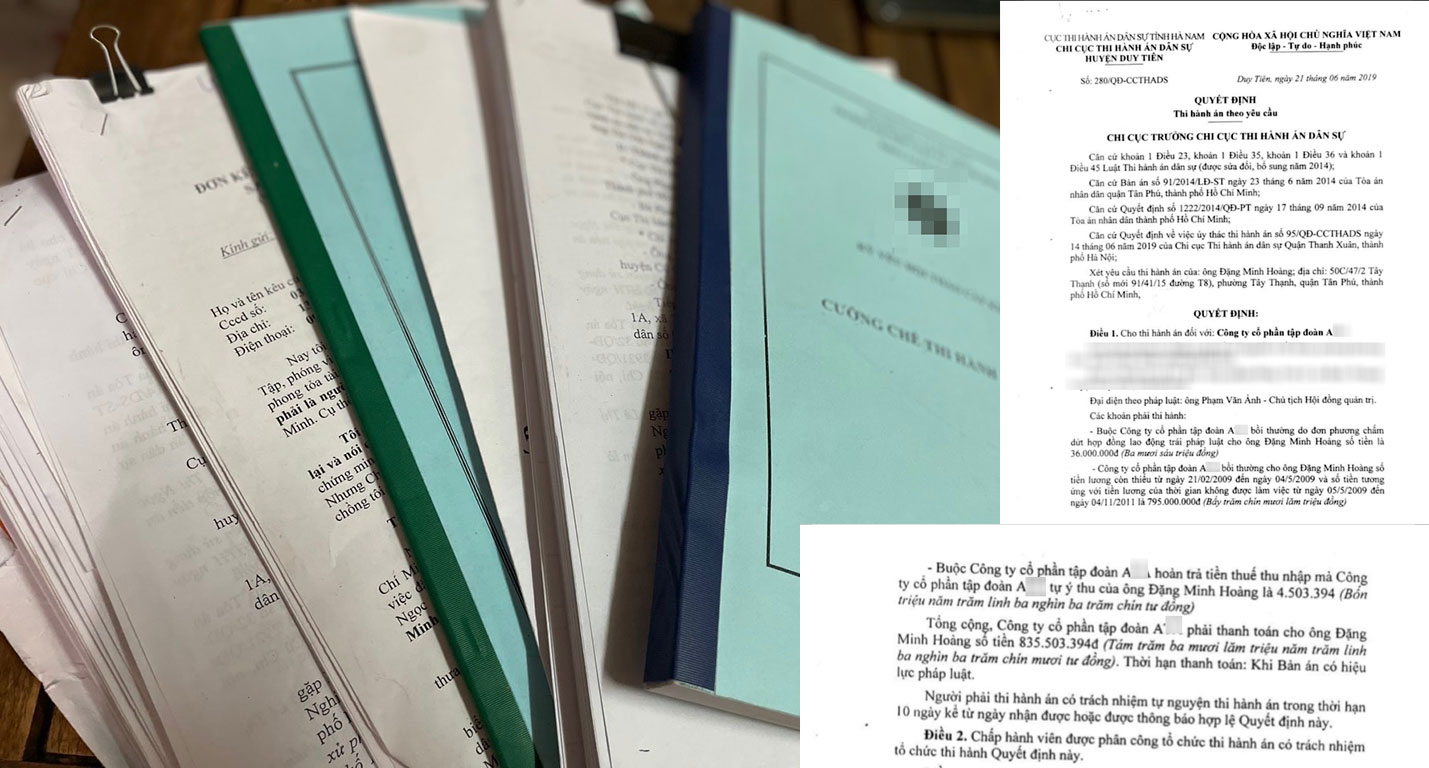
Mr. Hoang's file sent to the authorities (large photo); Duy Tien District's Execution Department issued a decision to execute the judgment
Disagreeing with the above decision, Mr. Hoang immediately filed a lawsuit in court, requesting Company A to confirm the probationary contract as an indefinite-term labor contract, accept him back to work and compensate him 1.8 billion VND...
On the contrary, Company A only agreed to pay income tax of more than 4.5 million VND because it had arbitrarily collected it from Mr. Hoang; at the same time, it also asked Mr. Hoang to compensate more than 580 million VND for letting the company suffer losses and not instructing employees on how to work.
In June 2014, Tan Phu District People's Court (HCMC) held a first-instance trial. According to the court, Article 32 of the Labor Code stipulates that the employer and employee must agree on a probationary period of no more than 60 days for highly skilled workers and no more than 30 days for other workers.
Thus, the maximum probationary period of the probationary contract between Mr. Hoang and the company was only until January 2009, but in reality Mr. Hoang still worked until February 2009. "The company's unilateral termination of the labor contract with Mr. Hoang is illegal," the verdict stated.
From there, the court declared to accept part of Mr. Hoang's lawsuit, determining that the probationary contract was a labor contract with a term of 3 years. Company A was forced to compensate Mr. Hoang for the remaining salary and the amount corresponding to the salary for the time he was not allowed to work from May 2009 to November 2011, more than 800 million VND.
As for the company's request for Mr. Hoang to compensate but did not pay the advance court fees, the court did not consider it.
Mr. Hoang then appealed, requesting the appellate court to declare his labor contract with Company A after January 2009 as an indefinite-term contract; forcing the defendant to compensate for the days he was not allowed to work for more than 63 months.
However, Mr. Hoang later withdrew his appeal. Therefore, in September 2014, the Ho Chi Minh City People's Court issued a decision to suspend the appeal trial of the case.
ASSETS TOO LARGE TO BE FORCED?
During the execution of the judgment, because Company A. had assets in Ha Nam province, in June 2019, the Civil Judgment Execution Office of Duy Tien District (Ha Nam) issued a decision to execute the judgment as requested.
However, for the past 4 years, although Company A has a factory, the department believes that it cannot enforce and seize assets. Last January, the department responded in writing that the reason for not being able to complete the execution of the judgment for Mr. Hoang is due to 3 reasons.
Firstly, Company A is still operating, the assets are the factory system and production line. The value of these assets is much greater than the obligation to pay and cannot be separated. Therefore, the enforcement officer has not applied the measure of seizure and handling of these assets but has verified and selected suitable assets to apply enforcement measures.
Second, from the end of 2019 to the beginning of 2022, due to the Covid-19 epidemic, Company A's production and business activities were affected, revenue was low, making it difficult to fulfill its THA obligations.
Third, at the time of verification, the company's account balance was very small, less than 1 million VND.
It has been 14 years since Mr. Hoang filed the lawsuit. Many times he had to spend time, effort and money going back and forth from Ho Chi Minh City to Ha Nam to claim his rights. Too tired, Mr. Hoang had to authorize a lawyer but still had no results.
I thought that if I won the lawsuit, the case would be closed, and I would have some money to cover my living expenses; but the verdict has been in effect for nearly 10 years, but everything for Mr. Hoang still doesn't know when it will end. "I can't understand why the THA agency responded like that? If the company went bankrupt, it would be fine, but they are still operating. How long does the Duy Tien District Civil THA Office want me to wait? I hope the competent authority will soon intervene and give me a satisfactory answer," Mr. Hoang was upset.
The ENFORCEMENT Department has not fulfilled its responsibilities.
According to Dr. Nguyen Van Tien, Deputy Head of the Civil Law Department, Ho Chi Minh City University of Law, based on Article 44 of the Civil Enforcement Law, the enforcement officer must verify the enforcement conditions of the person subject to enforcement.
According to Dr. Tien, the Duy Tien District Civil Enforcement Office has not really fulfilled its responsibilities. Because during its operation, Company A may have other assets such as cars, machinery, production equipment, etc.
"In my opinion, verifying only the company's account is not enough. In fact, there are cases where businesses do not use their own accounts but personal accounts," Dr. Tien noted. Therefore, the enforcement officer needs to verify with the tax and insurance agencies to see how much they pay for employee insurance; and if it is an import-export company, it also involves the customs agency. From there, the enforcement agency will know more information about the business's other assets to proceed with the seizure and handling of assets.
GENERAL DEPARTMENT OF CIVIL JUDGMENT ENFORCEMENT REQUESTS REPORT
Speaking to Thanh Nien , Director of the Civil Enforcement Agency of Ha Nam province Hoang Van Tue said that the General Department of Civil Enforcement has requested a report on the incident.
After checking, Mr. Tue said that the enforcement officer actively resolved the case, but encountered some difficulties in the attachment, because the person who had to pay the fine evaded his obligations.
When asked by the reporter, in this case, the enforcement officer can verify other assets of the enterprise to be seized such as cars, machinery, etc.; the Director admitted that his subordinates have not met the requirements of the job. "The enforcement officer is also poor. I have held a meeting and directed that from now on, when verifying accounts, we must verify the State Bank to be complete, because there are currently many banks. At the same time, we must verify other assets as the reporter mentioned," Mr. Tue informed.
(to be continued)
Source link



![[Photo] "Beauties" participate in the parade rehearsal at Bien Hoa airport](https://vstatic.vietnam.vn/vietnam/resource/IMAGE/2025/4/11/155502af3384431e918de0e2e585d13a)

![[Photo] Looking back at the impressive moments of the Vietnamese rescue team in Myanmar](https://vstatic.vietnam.vn/vietnam/resource/IMAGE/2025/4/11/5623ca902a934e19b604c718265249d0)


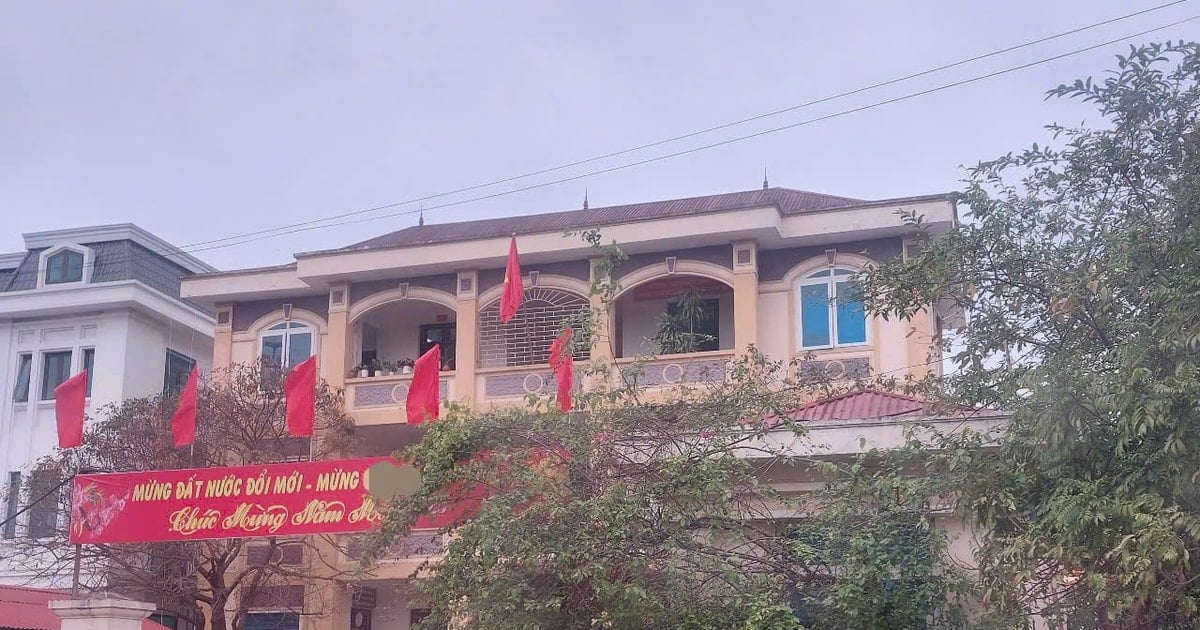



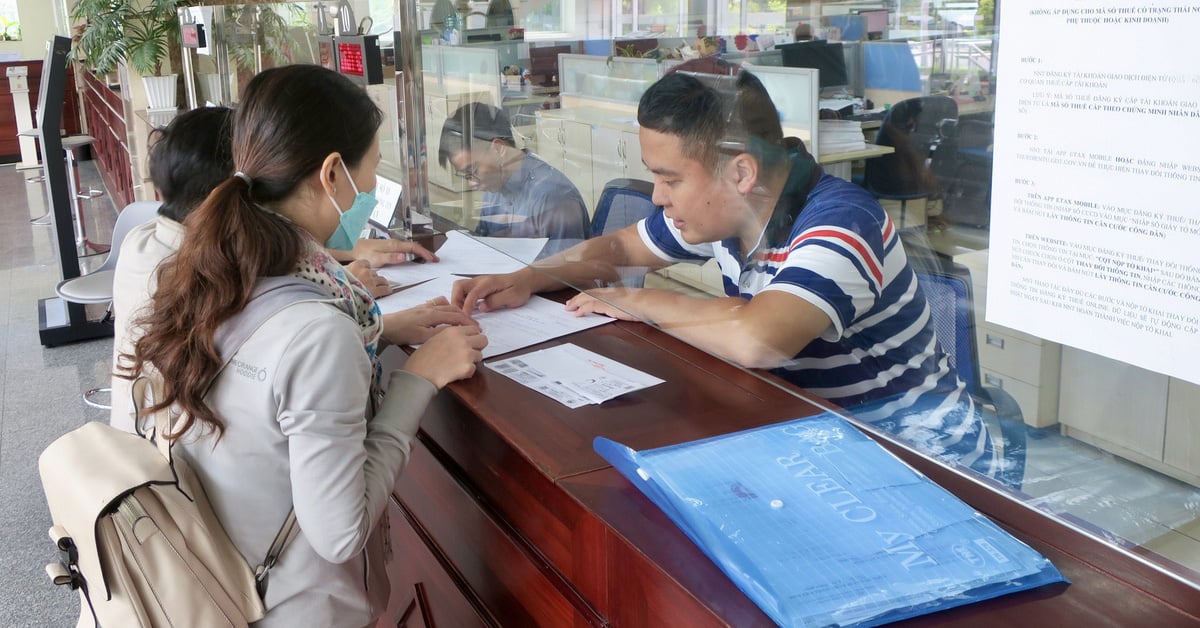




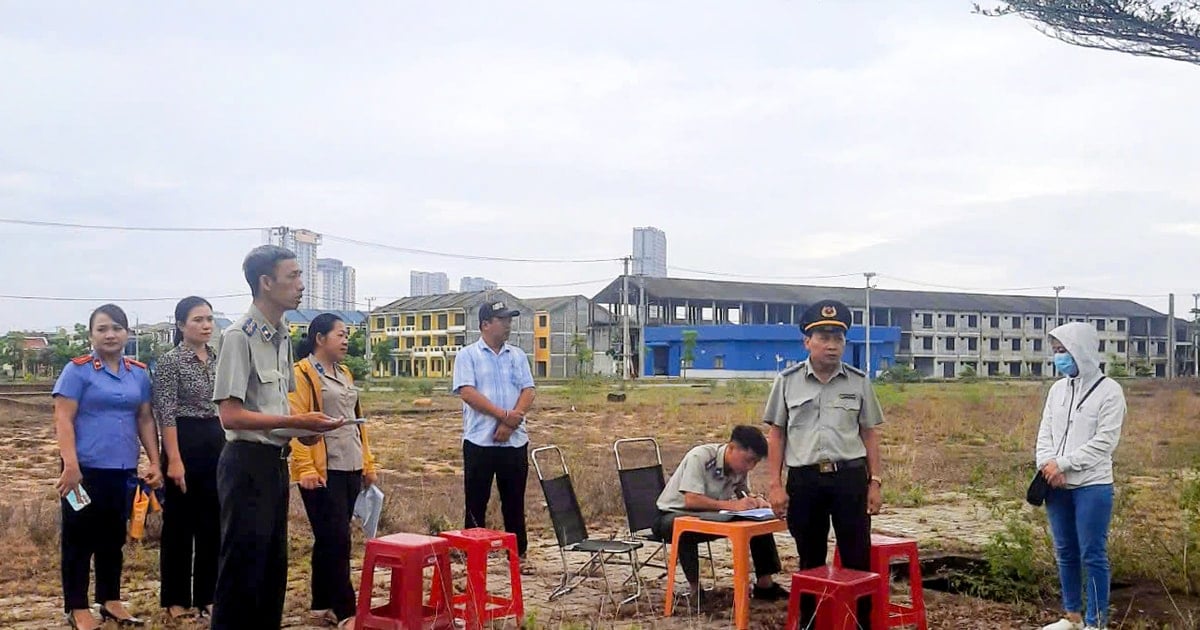


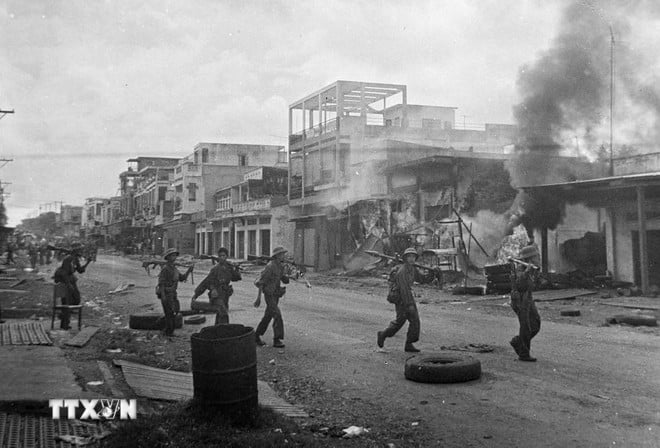
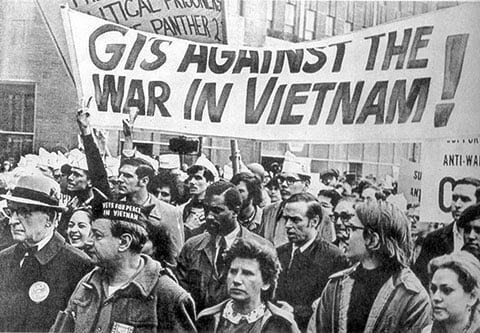

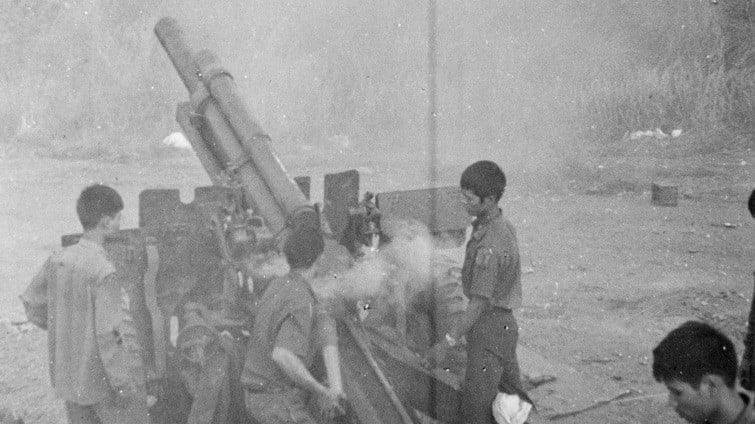





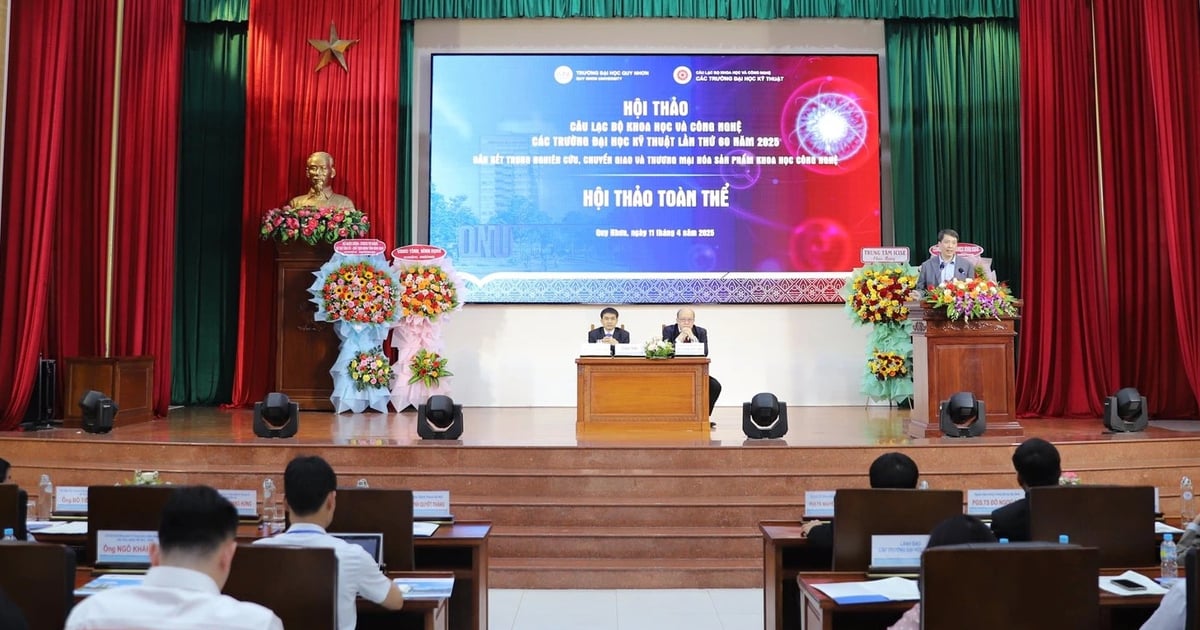


![[Photo] Summary of parade practice in preparation for the April 30th celebration](https://vstatic.vietnam.vn/vietnam/resource/IMAGE/2025/4/11/78cfee0f2cc045b387ff1a4362b5950f)







































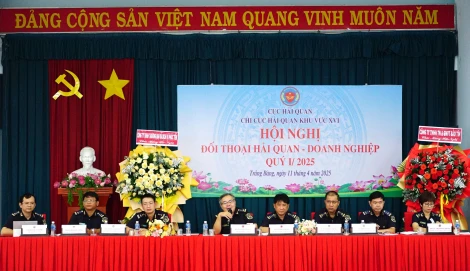
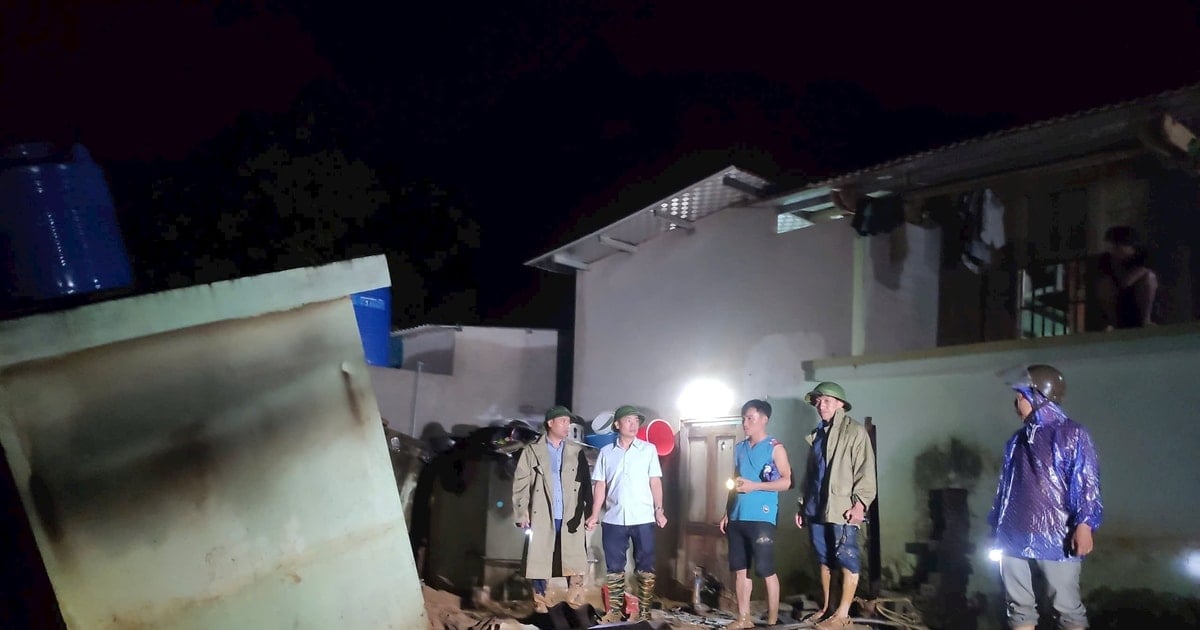



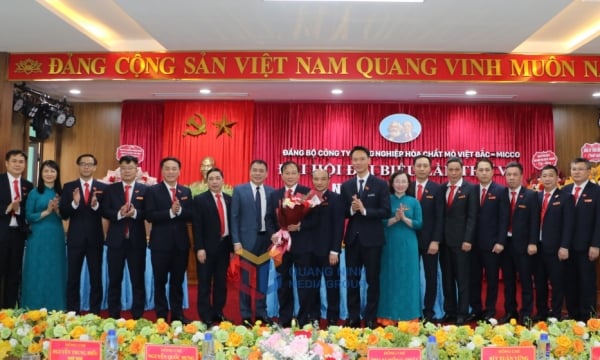
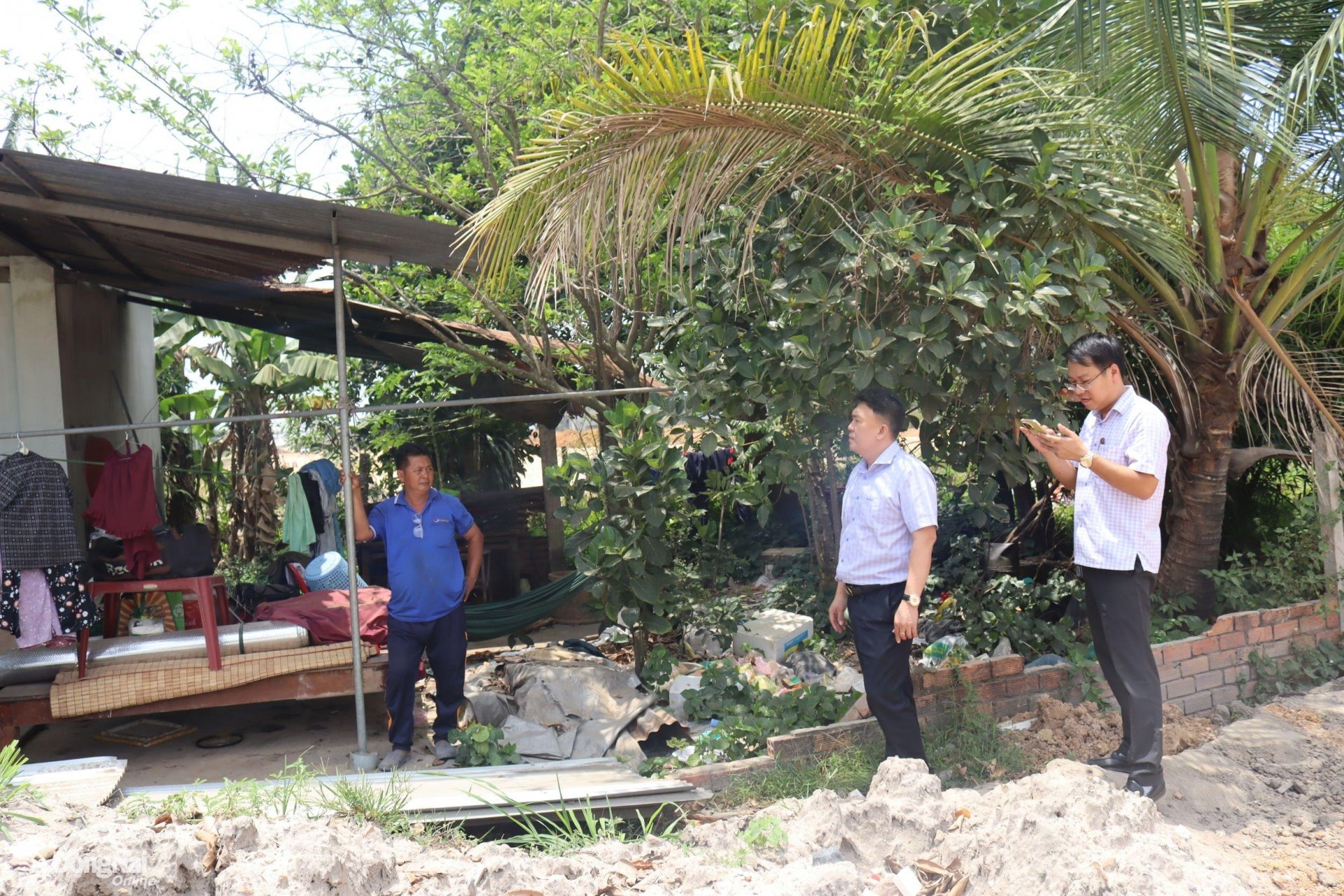

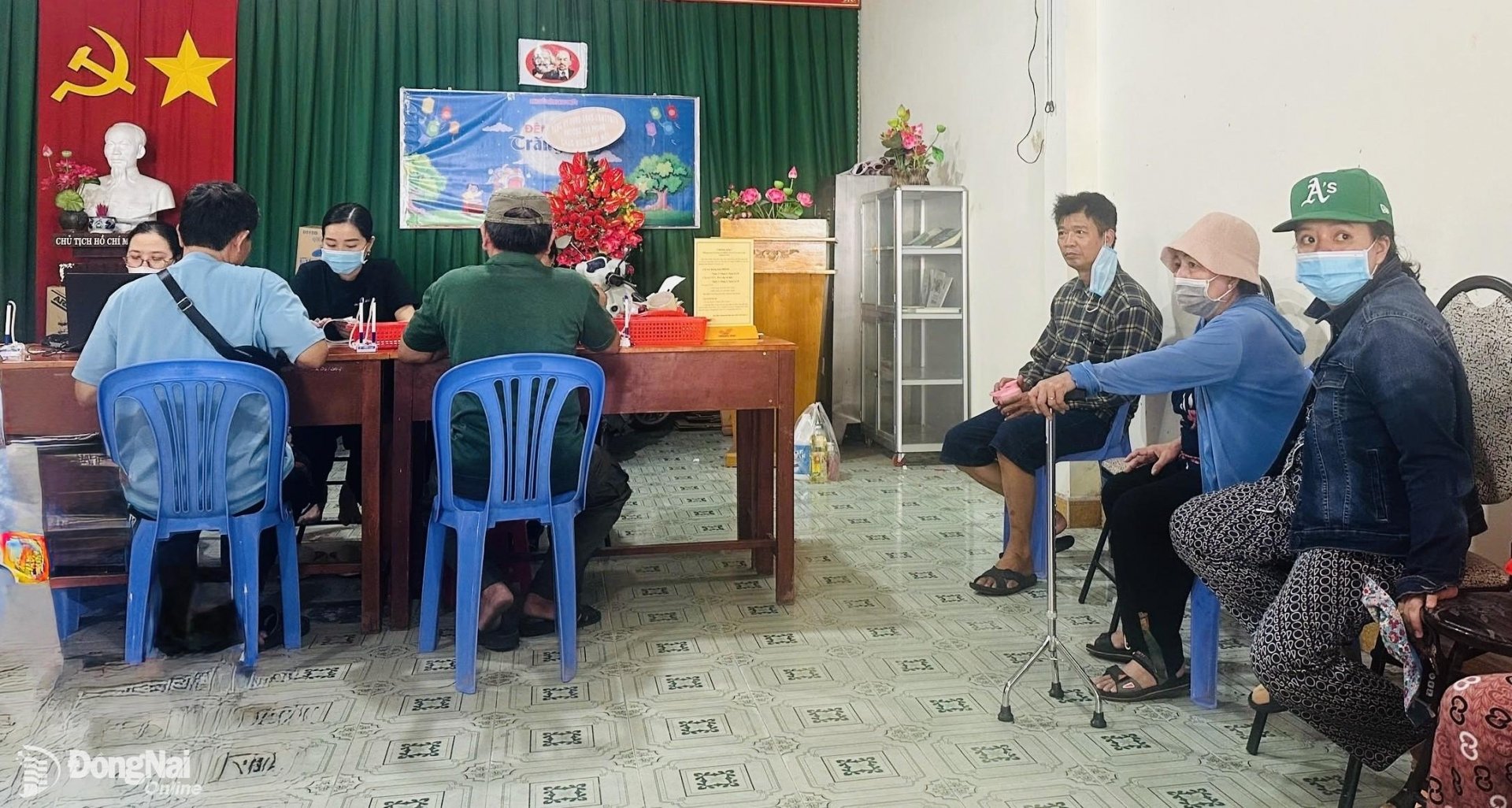











Comment (0)